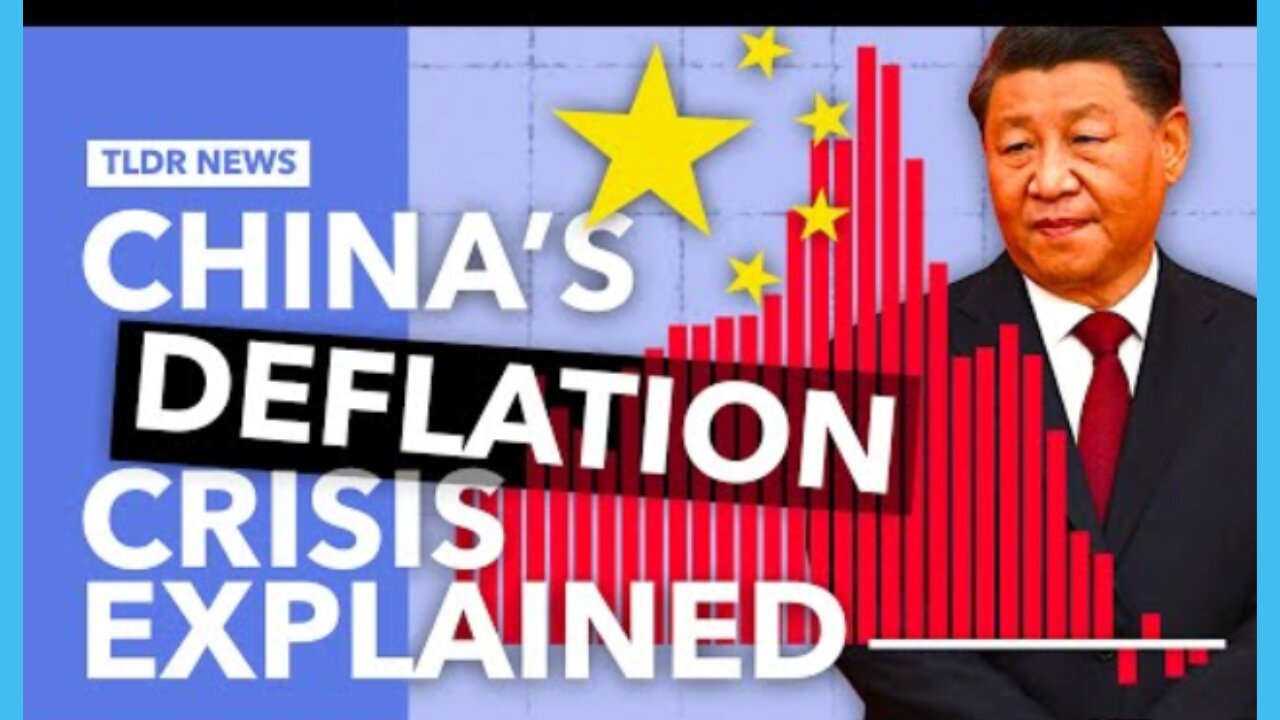Premium Only Content

China slip into deflation : whats next?
Like follow and share
According to AI
The China deflation crisis refers to a period of sustained and significant decrease in the general price level of goods and services in the Chinese economy. Deflation can occur when there is a decrease in consumer demand, leading to a decrease in prices.
Several factors can contribute to deflation in China. One key factor is overcapacity in certain industries, such as manufacturing and real estate. When there is excess supply compared to demand, prices tend to decline.
Another factor is the slowdown in economic growth. As the Chinese economy transitions from an investment-driven model to a consumption-driven model, there may be a decrease in demand for goods and services, which can lead to deflationary pressures.
Additionally, global factors, such as changes in commodity prices and trade tensions, can also impact China's inflation rate. For example, a decrease in global oil prices can lead to lower production costs and, in turn, lower prices for consumers.
The Chinese government implements various measures to address deflation, such as monetary policy adjustments, fiscal stimulus, and structural reforms to promote domestic consumption and increase the competitiveness of industries.
It's important to note that deflation can have both positive and negative effects. While falling prices may benefit consumers in the short term, prolonged deflation can lead to lower investment, decreased wages, and economic stagnation.
In summary, the China deflation crisis refers to a period of sustained decrease in the general price level of goods and services. It is influenced by factors such as overcapacity, economic growth, and global conditions. The government implements measures to address deflation and mitigate its potential negative impacts.
-
 53:25
53:25
tether
11 days agoStability and Freedom in Chaos: The Story of Tether USD₮ | Tether Documentary (USDT)
32.6K3 -
 56:44
56:44
VSiNLive
1 day agoFollow the Money with Mitch Moss & Pauly Howard | Hour 1
671 -
 36:50
36:50
Anthony Pompliano
2 days ago $0.06 earnedInvestors Are ALL-IN On Bitcoin
3253 -
 32:19
32:19
SB Mowing
9 days agoA Backyard She’s NEVER Seen – Now Safe for the Kids to Play!
8.15K11 -
![[Day 26] CS Blast bounty baby](https://1a-1791.com/video/fwe2/8a/s8/1/Z/H/j/_/ZHj_w.0kob-small-Day-26-CS-Blast-bounty-baby.jpg) 2:09:11
2:09:11
ggezlol_tv
3 hours ago[Day 26] CS Blast bounty baby
19.4K -
 2:32:17
2:32:17
Sgtfinesse
2 hours ago💥Sunday Morning Hunt for Featherweight Artifact | New World PVP Server: Sclavia
11.8K -
 11:25
11:25
Film Threat
18 hours agoLET'S DISCUSS THE 2025 OSCAR NOMINATIONS | Film Threat News
13K5 -
 13:07
13:07
DEADBUGsays
3 hours agoThe Southport Massacre, The Great British Cover-Up
16.4K12 -
 25:26
25:26
hickok45
6 hours agoSunday Shoot-a-Round # 265
13K25 -
 30:55
30:55
Tundra Tactical
17 hours ago $15.96 earnedFaith, Family, Gun Rights : Tundra Tactical Interviews Erich Pratt Vice President Of GOA
88.5K17